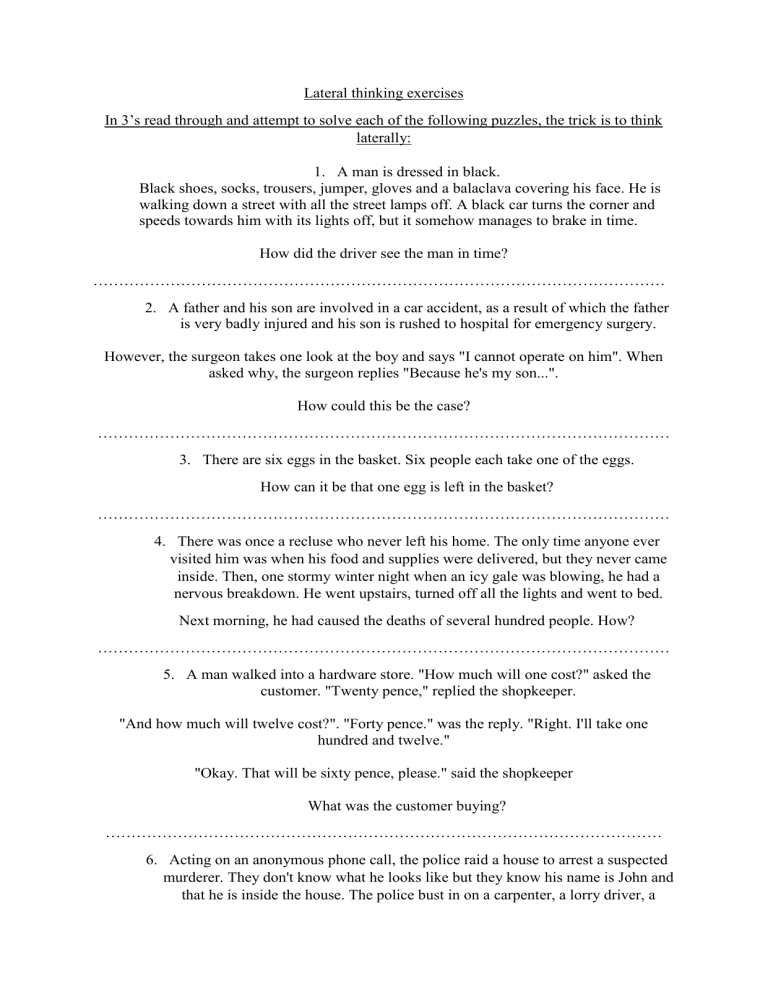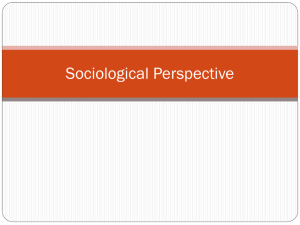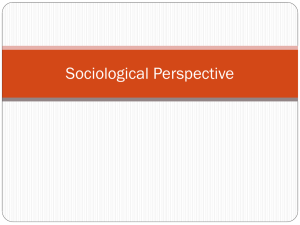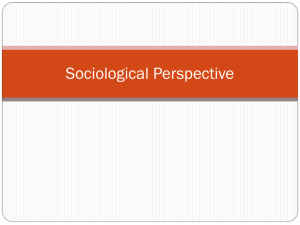Lateral-thinking-exercises-student
advertisement

Lateral thinking exercises In 3’s read through and attempt to solve each of the following puzzles, the trick is to think laterally: 1. A man is dressed in black. Black shoes, socks, trousers, jumper, gloves and a balaclava covering his face. He is walking down a street with all the street lamps off. A black car turns the corner and speeds towards him with its lights off, but it somehow manages to brake in time. How did the driver see the man in time? ………………………………………………………………………………………………… 2. A father and his son are involved in a car accident, as a result of which the father is very badly injured and his son is rushed to hospital for emergency surgery. However, the surgeon takes one look at the boy and says "I cannot operate on him". When asked why, the surgeon replies "Because he's my son...". How could this be the case? ………………………………………………………………………………………………… 3. There are six eggs in the basket. Six people each take one of the eggs. How can it be that one egg is left in the basket? ………………………………………………………………………………………………… 4. There was once a recluse who never left his home. The only time anyone ever visited him was when his food and supplies were delivered, but they never came inside. Then, one stormy winter night when an icy gale was blowing, he had a nervous breakdown. He went upstairs, turned off all the lights and went to bed. Next morning, he had caused the deaths of several hundred people. How? ………………………………………………………………………………………………… 5. A man walked into a hardware store. "How much will one cost?" asked the customer. "Twenty pence," replied the shopkeeper. "And how much will twelve cost?". "Forty pence." was the reply. "Right. I'll take one hundred and twelve." "Okay. That will be sixty pence, please." said the shopkeeper What was the customer buying? ……………………………………………………………………………………………… 6. Acting on an anonymous phone call, the police raid a house to arrest a suspected murderer. They don't know what he looks like but they know his name is John and that he is inside the house. The police bust in on a carpenter, a lorry driver, a mechanic and a fireman all playing poker. Without hesitation or communication of any kind, they immediately arrest the fireman. How do they know they've got their man? ……………………………………………………………………………………………… Sociological Thinking Lateral Thinking can be a useful technique to apply to the sociological interpretation of events and ideas, since it is evident that, in the social world, whenever people view something they make certain assumptions about the nature of the event being viewed. In other words, the assumptions we bring into a situation necessarily colour our interpretation and understanding of what we are seeing. An obvious example here might be the use of two different concepts (terrorist and freedom fighter) to describe the same thing - someone who uses violence to try to achieve certain political aims. From one point of view - the people who are victims of the violence, the act may be seen as one of terrorism (and hence unjustifiable). To the people responsible for inflicting the violence, on the other hand, the act may be seen as justifiable in the context of the political aims being pursued... In other words, how we view something involves assumptions about how something does or should behave. It follows, therefore, that if we change the assumptions on which our interpretation rests it is possible we will see a different outcome - we will view it differently... Sociologically, this idea is important since information about the social world is not something that exists in a vacuum; on the contrary, information is produced by individuals and groups in ways that fit with their assumptions about the nature of the social world and, for this reason, we need to be able to think about the nature of the assumptions used (how reasonable are they, for example?) and what would be the effect if we changed those assumptions? Thus, that which looks self-evident, obvious or unquestionable using one set of assumptions may be not be so evident, obvious or unquestionable using another set of assumptions and to end this section on a sociological example of Lateral Thinking, consider the following: It is possible, statistically, to demonstrate that children raised in single-parent families are far more likely than children raised in dual-parent families to become criminal adults. If this, on the face of things, is the case then it follows that something about growing-up in a single-parent family seems to turn people into criminal adults. However, it's possible that a propensity towards criminality has little or nothing directly to do with the type of family in which children are raised - it may be that poverty is a far more important factor - and children raised by a single-parent in our society are much more likely to experience childhood poverty...





